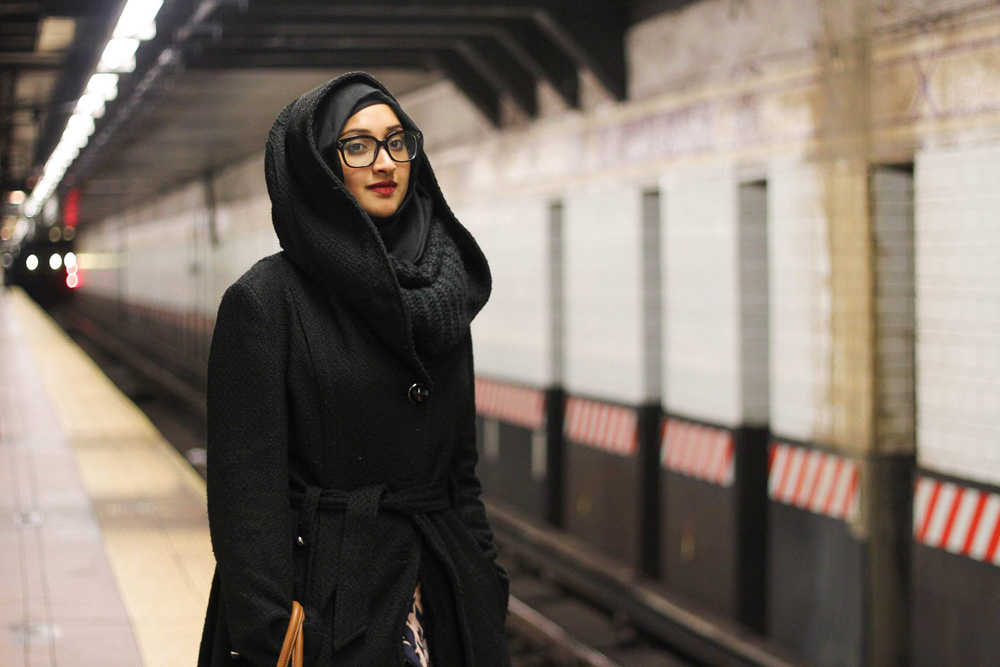
‘Gee, Rana, when I first met you I thought you’d be different, like, more quiet. But you’re actually pretty normal,’ a friend told Rana Abdelhamid, a 23-year-old hijabi from New York. Although receiving comments like these may seem shocking to non-Muslims, Muslim women in the West, particularly hijabis, have grown used to hearing them on a daily basis.
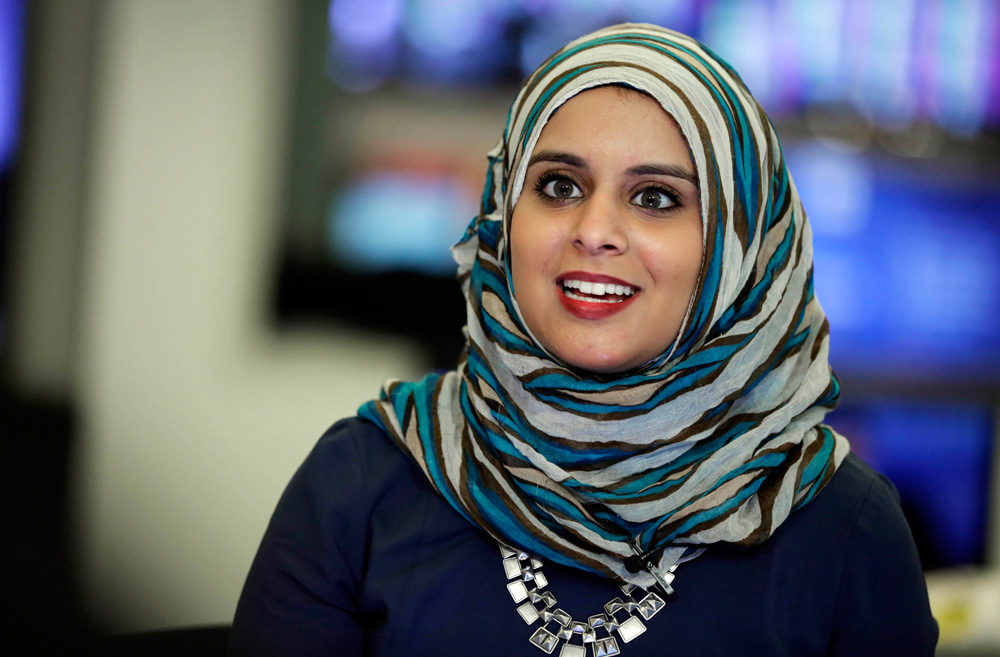
Rana Abdelhamid
The idea of Muslim women not being ‘normal’ is one of the narratives most fervently encouraged by the U.S and other Western countries post-9/11. Whereas modest dress was hardly discussed before the attacks, the hijab became an instant symbol of Islamic extremism and has dominated headlines ever since.
What the media has continued to conveniently ignore are the women who wear hijabs and rather than talking to them about their decisions to cover - have crafted stereotypes ranging from the oppressed woman to the exotic outsider.
Tired of having to continuously grapple with these preconceptions, Abdelhamid began Hijabis of New York, a social media project that showcases photos and interviews of hijabis going about their day-to-day lives. In the same vein as the acclaimed Humans Of New York, the project aims to give Muslim women a safe space to be themselves, all the while educating non-Muslim audiences about the realities of being a young Muslim woman in America.
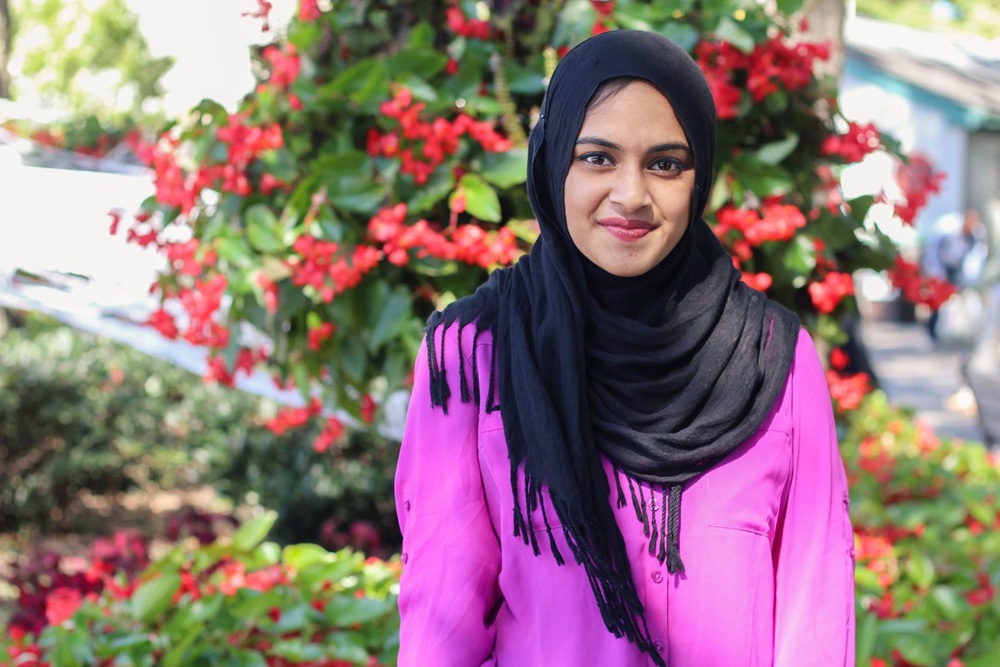
"My goal was to use photography and social media to show the rest of the world the vibrancy and diversity of Hijabi women," Abdelhamid told Elle. “There are so many stereotypes around the hijab, both from within the Muslim community and the non-Muslim community. People will assume that veiled women are really conservative, soft spoken, docile and not career-oriented.”
Hijabis of New York has amassed over 30,000 likes on Facebook since its inception in 2014 and asks women about everything from politics, to hopes and dreams to religion.
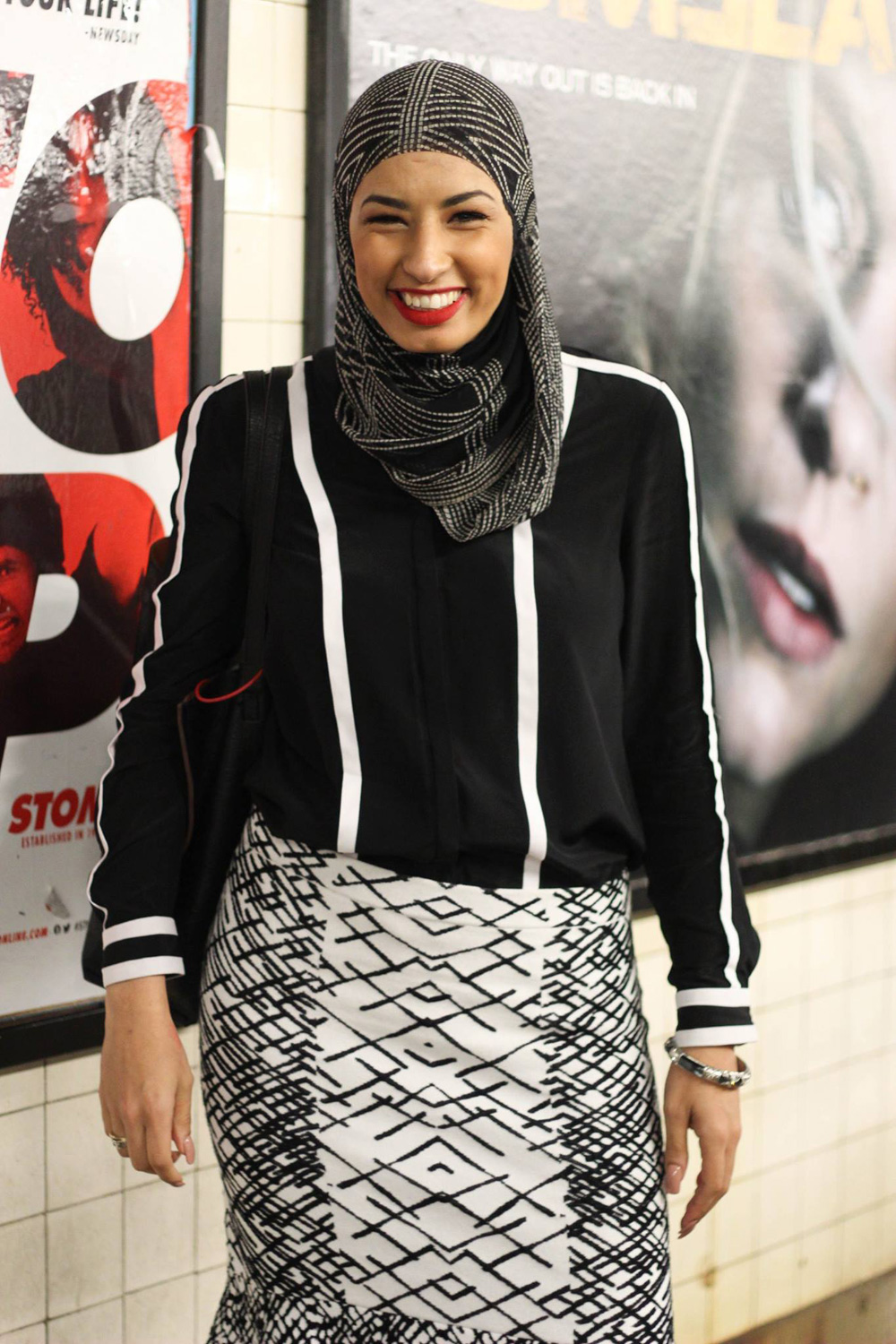
"I don't think I've ever been happier,” says one woman featured. “Since college started, I've had lots of time to think about how blessed I am to be able to continue my education...it's something I've learned to value and love. I used to complain about school a lot, but I realized that there are so many people around the world who would do anything to be in my position. That's why I love learning so much – not a day goes by when I don't feel like one of the luckiest people in the world."
“You’re going through the pictures and you see how many of these women are really successful, have all these ambitions or have their own stories,” Abdelhamid told pbs. “It seems really simplistic because obviously everyone has their own story … but there is this constant image that is being fed to Western society as a whole as to what it means to be Muslim.”
According to Abdelhamid, the cultural shift toward social media has allowed Muslim women to take control of their representation, rather than relying on the discourses espoused by mainstream media. “Now we have the language to speak about these issues. We have blogs that elevate Muslim women and elevate [hijabi] fashion. So there has been a trend,” she told The Village Voice. “It’s a product of social media and a product of having access to these types of resources that allows us to convey our own narrative. It’s really empowering.”
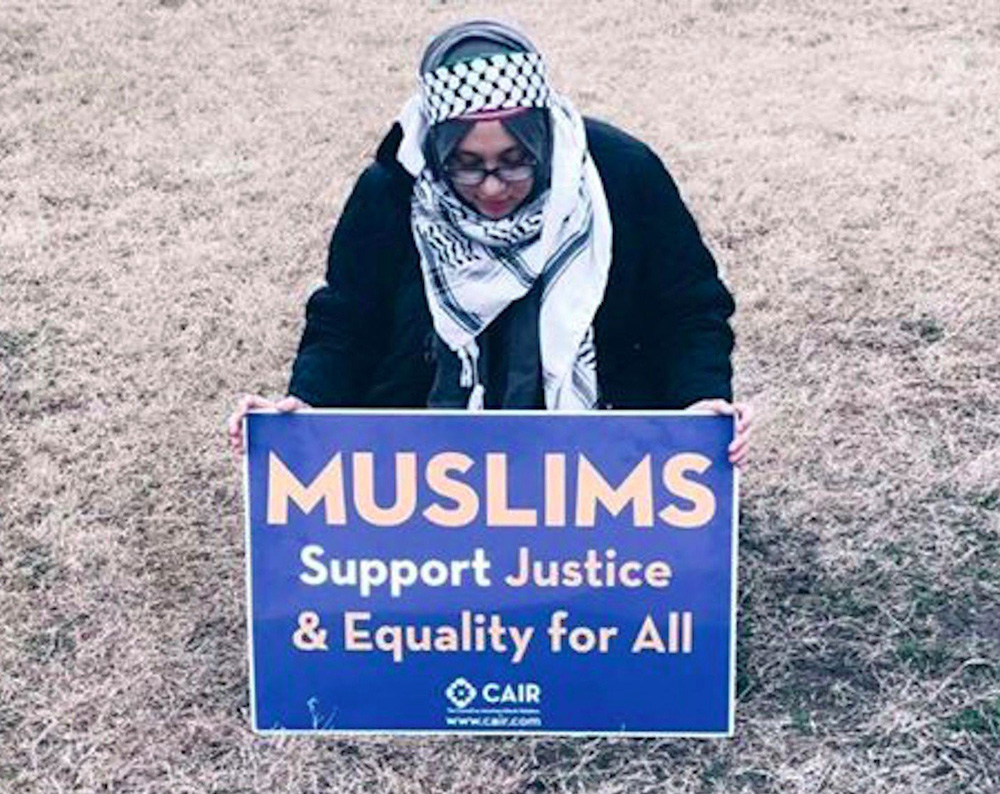
"I don't think I've ever been happier,” says one woman featured. “Since college started, I've had lots of time to think about how blessed I am to be able to continue my education...it's something I've learned to value and love. I used to complain about school a lot, but I realized that there are so many people around the world who would do anything to be in my position. That's why I love learning so much – not a day goes by when I don't feel like one of the luckiest people in the world."
“You’re going through the pictures and you see how many of these women are really successful, have all these ambitions or have their own stories,” Abdelhamid told pbs. “It seems really simplistic because obviously everyone has their own story … but there is this constant image that is being fed to Western society as a whole as to what it means to be Muslim.”
According to Abdelhamid, the cultural shift toward social media has allowed Muslim women to take control of their representation, rather than relying on the discourses espoused by mainstream media. “Now we have the language to speak about these issues. We have blogs that elevate Muslim women and elevate [hijabi] fashion. So there has been a trend,” she told The Village Voice. “It’s a product of social media and a product of having access to these types of resources that allows us to convey our own narrative. It’s really empowering.”
Abdelhamid has experienced first hand the dangers Muslim women face due to misrepresentation. When she was 16, a man tried to violently pull of her hijab when she was on her way to volunteer at a domestic-violence shelter. The assault left her shaken but determined to prepare other Muslim women to defend themselves from Islamophobic attacks. Abdelhamid went on to found the Women’s Initiative for Self-Empowerment (WISE), an organisation that offers self-defense and leadership classes for young Muslim women in New York.
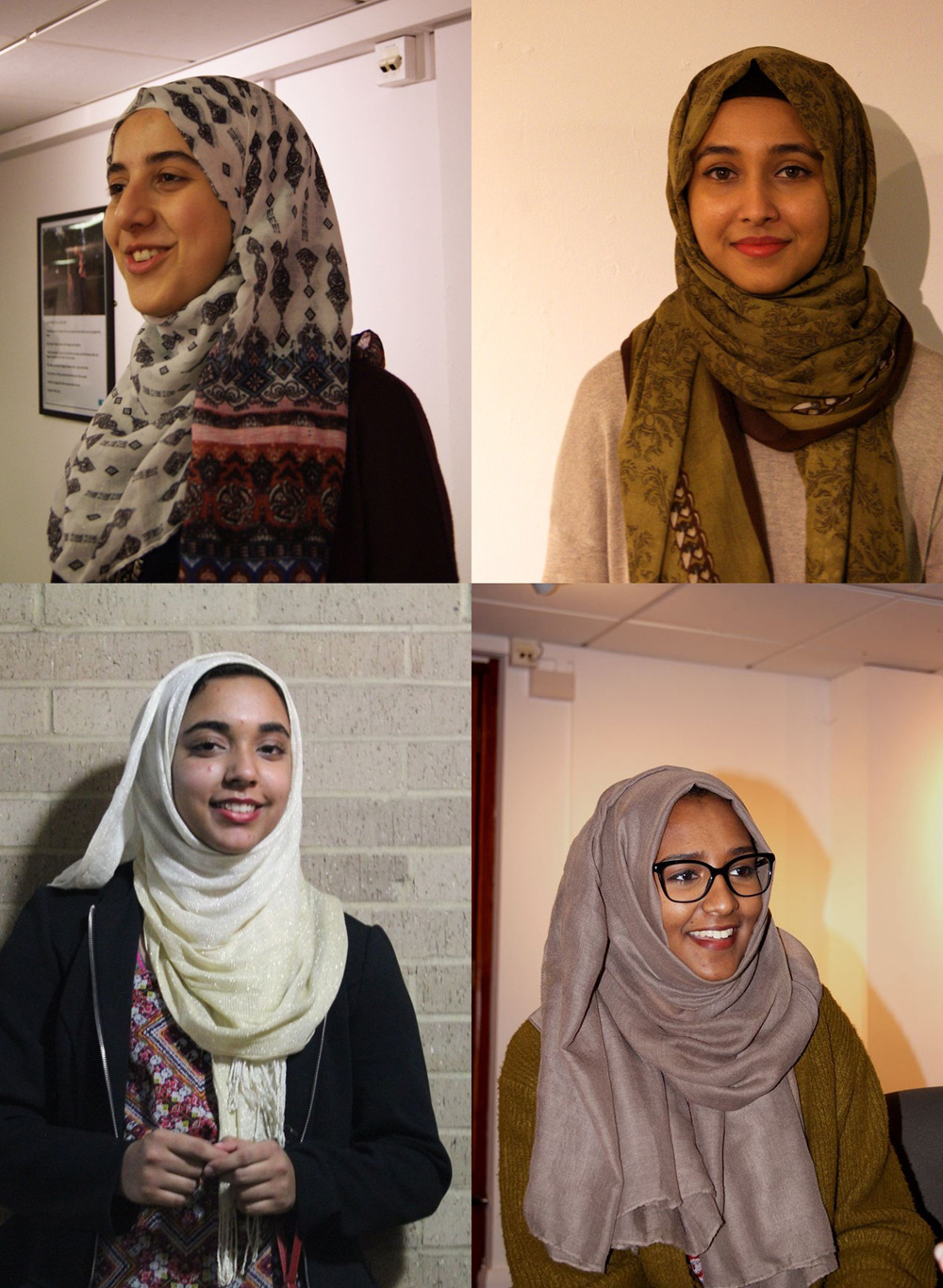
“There is also the dehumanization of veiled women that has made us walking targets of anti-Islamic bigotry,” she said. “Many people think that the hijab is oppressive. For me, the hijab is an empowering part of my identity and is my choice. There are so many badass hijab-wearing Muslim women. If people aren't getting to know us, they're seriously missing out! Get to know us."
Hijabis of New York has recently expanded to follow Abdelhamid on her travels around the world. It has featured hijabis from Spain, Saudi Arabia and Malaysia. “Three years ago I started Lean In Malaysia, a women's empowerment platform that empowers women to pursue their ambitions both personally and professionally,” explains a woman from Kuala Lumpur. “I want to change the mindset of the society I live in to let us dream big. We make up half of the world's population and it should be normal by now to have women lead organisations and for men to manage domestic space. We are enough."
Although Hijabis of New York has gained attention because of its focus on women wearing the hijab, Abdelhamid hopes that people can move past how Muslim women dress, and see them for the ‘normal’ human beings that they are.
"I am really tired of conversations about Muslim women being only focused on what we wear," she said. "There are so many other real challenges–domestic violence, assault, harassment–facing Muslim women that I hope this page will be able to shed a light on."

















